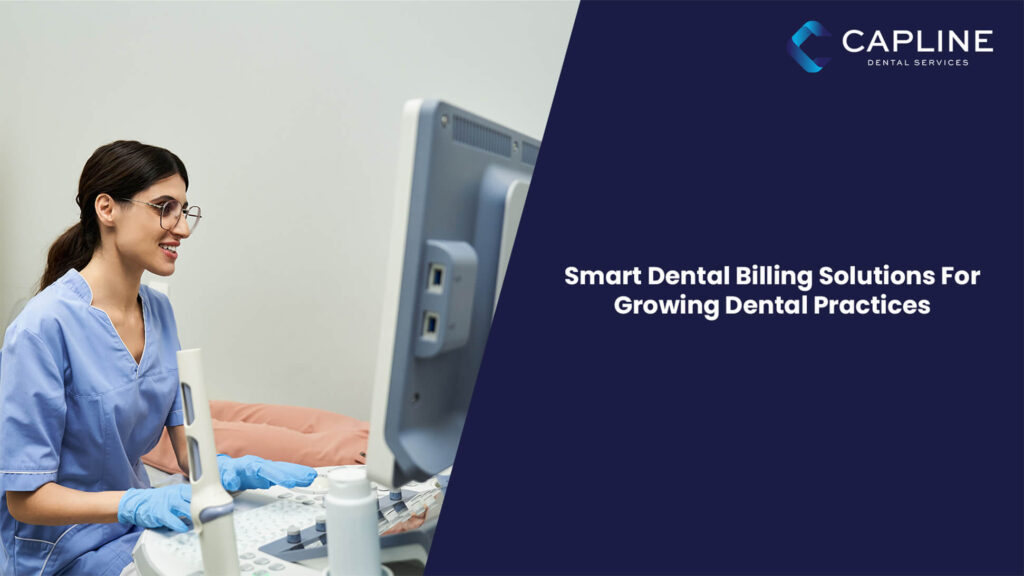
Dental billing solutions are paramount. There are factors for enhancing revenue. Capline Dental Services highlights the challenges and strategies for practices to grow without affecting operations.
Currently, 35% of dental professionals work with different sites. The rapid expansion presents opportunities with challenges. Dental billing solutions improve profits, reduce administrative overhead, and decrease claim denials. Billing processes are conflicting for dental practices.
As the dental practices expand through various locations, mergers and acquisitions come with undermining efficiency and profitability. Dental billing inconsistency with multiple locations can create challenges for the practice:
Insurance Follow-up Collapses:
One location has a rigorous workflow for follow-ups, while the other does not follow up at all, leading to lapses. That jeopardizes the RCM and affects patient satisfaction.
Chaos in the Processes:
Each location has a distinct approach to patient registration, insurance verification, and coordination of benefits handling. Dental practices with expert resources use advanced billing solutions in real time. Other practices rely on manual billing methods. The disparity affects the patient experiences and creates inefficiency in the workflow.
Coding Faults:
Sites at multiple locations have varying training and education on coding. That affects compliance. The significant risks could be over- or undercoding due to the encouragement of not following the internal guidelines. Additionally, compliance issues result in financial losses and breaches.
Poor Experience:
The absence of a unified approach towards patient statements, payment collection, and financial responsibilities can create confusion that diminishes the patient experience. Patients appreciate transparency regarding costs, which saves time.
Varying Key Performance Indicators:
The lack of standardization in KPI monitoring creates gaps in performance evaluation. Various locations have varying metrics; for instance, one location prefers claim submission within 24 hours, while others settle for 48 hours. The inconsistency affects the individual's performance; addressing these issues can promote long-term success while creating a patient-centered practice.
Dental practices are facing challenges in RCM. A unified approach to consolidate the execution at multiple locations. Revamp revenue with the following strategies:
Centralize RCM:
The integrated revenue cycle department strategy does not allow each site to operate its own independent department. Optimization removes the need for tedious tasks.
Consistency:
It is the key for all the locations to adhere to the standard protocols for all aspects of the RCM, including eligibility verification, patient registration, coding, follow-ups, and patient support. Consistency ensures coordination that enhances patient care.
KPIs are standard for all the sites that consistently monitor the performance, along with benchmarks for collective progress. Data analysis serves the purpose.
Training and Documentation:
Training with the standard module develops the staff across all locations with the necessary instructions. Creating a guideline that ensures clarity with detailed information to ensure everything gets captured for patient billing. Use of templates and standard charting for providers improves accuracy.
RCM Tools:
Practice management systems align all locations and have a seamless exchange through a cohesive dental billing approach. That streamlines scheduling and safeguards revenue. All team members are working towards the goal that drives success at multiple sites.